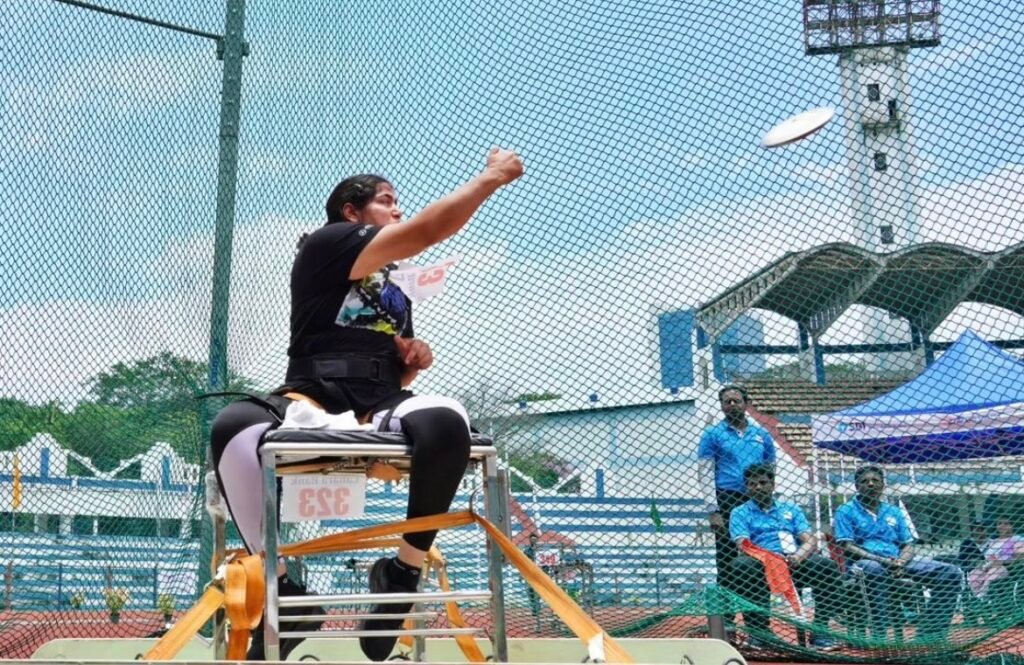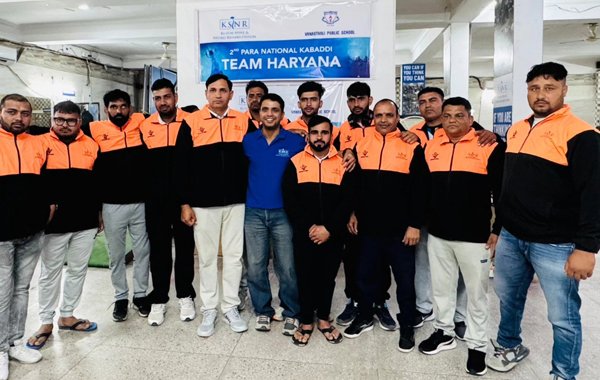After Spinal cord injury an individual’s life is significantly altered, making it challenging for them to adjust to the new changes. This can have a profound impact on their mental health, leading to feelings of difficulty adapting and a sense of loss of control. However, there are several positive actions that can be taken to foster a healthy mindset and move forward with life. One of the most effective ways to promote mental well-being is through participation in sports.

Sports can bring sense of positivity and purpose back into an individual’s life, helping them to adapt new circumstances. Additionally, it can provide a source of income for individuals with SCIs, which can be a valuable tool in their recovery. Apart from this participation in sports holds immense transformative potential in enhancing the lives of individuals with SCISs. Here’s how:
- Physical Rehabilitation and Health Benefits
- Improved mobility and functionality
- Reduced secondary health issues
- Social connection and support
- Boost in confidence and self-esteem
- Advocacy and awareness
Numerous Benefits of Sports
1. Physical Benefits
Engaging in adapted sports can significantly enhance the physical fitness of individuals with SCIs, leading to improved strength, endurance, and overall fitness levels. These activities also contribute in better health and vitality.
Moreover, it can improve mobility and functionality by enhancing range of motion, balance, and coordination, resulting in improved mobility and a sense of independence.
Additionally, it can help in minimizing the secondary health complications such as osteoporosis or cardiovascular problems.
2. Psychological and Emotional Benefits
Participating in sports can have a positive impact on psychological well-being and emotional resilience of an individual.
Furthermore, it can boost confidence and self-esteem, leading to a sense of positivity and accomplishment.
Additionally, sports can help reduce stress, anxiety, and depression, which is a significant concern for individuals with SCIs.
3. Improved Social Connection
Involvement in sports programs can also create opportunities for social interaction, friendship, and a sense of belonging within society.
Furthermore, this social connection and support can be particularly important for individuals with SCIs, who may face social isolation and stigma.
4.Advocacy and Awareness
The involvement of SCIs in sports can serve as a platform to advocate for disability rights and accessibility.
Also, by showcasing the capabilities and potential of individuals with disabilities, adapted sports can also help in breaking down stereotypes and promote a more inclusive society.
Adaptive Sports for disabled bodies
Like abled bodies people with disability can also play any sort of games. Some of the games are mentioned below:
- Archery
- Athletics
- Track and field
- Boccia
- Shooting
- Wheelchair Basketball
- Wheelchair cricket
- Wheelchair rugby
- Powerlifting
- swimming
Classification determines who is eligible to compete in a para sport and it groups the eligible athletes in sport classes according to their activity limitation in a certain sport.
Transformative Power of Sports: Key points
Adapted sports play a crucial role in transforming the lives of individuals with SCI by not only improving their physical health but also nurturing their mental and emotional well-being. These sports create a pathway to empowerment, independence, and a fulfilling life beyond the confines of their injury.
-By Dr. Virendra Vikram Singh(PT)

